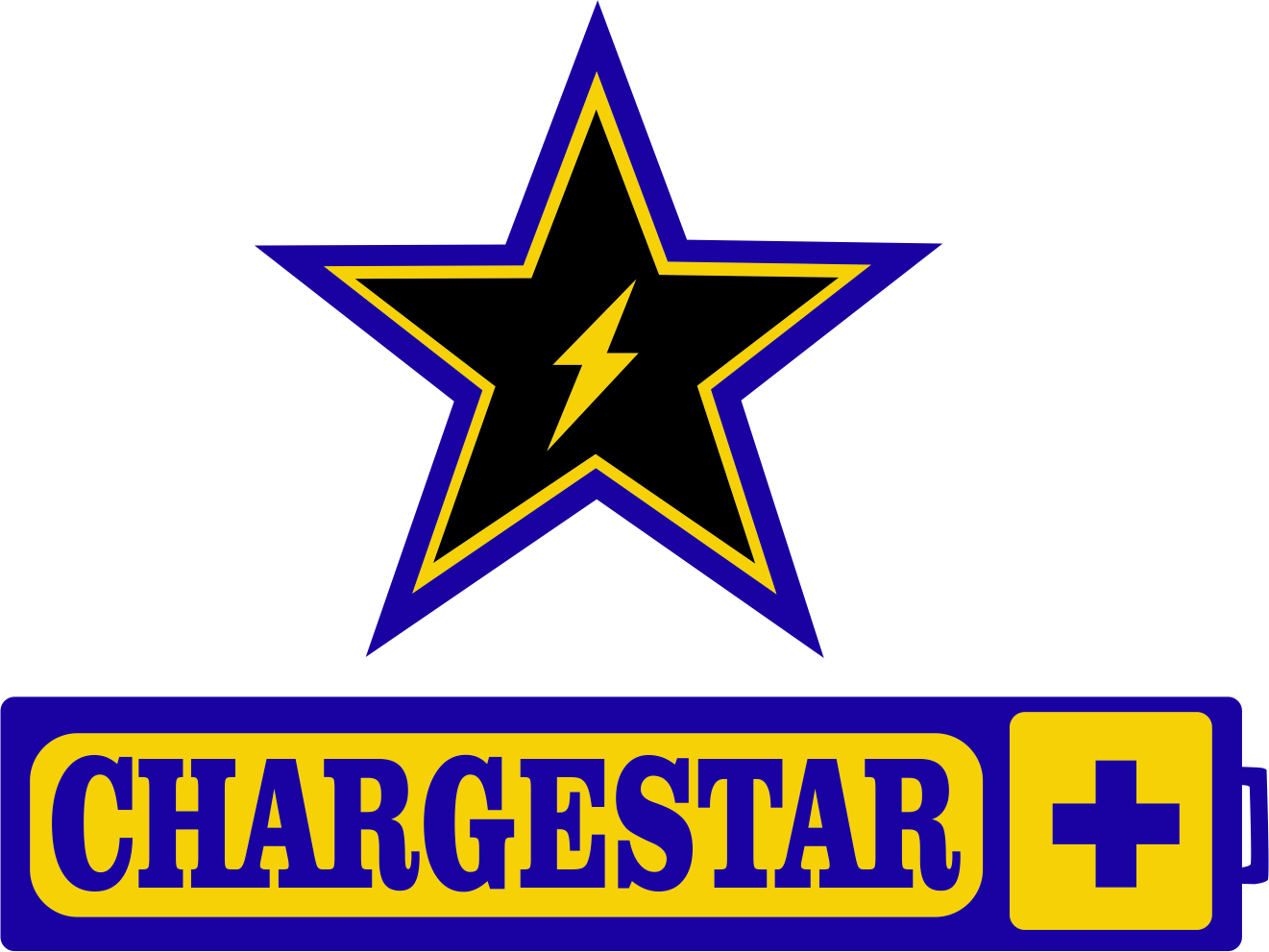Earth EV app
Putting you in charge
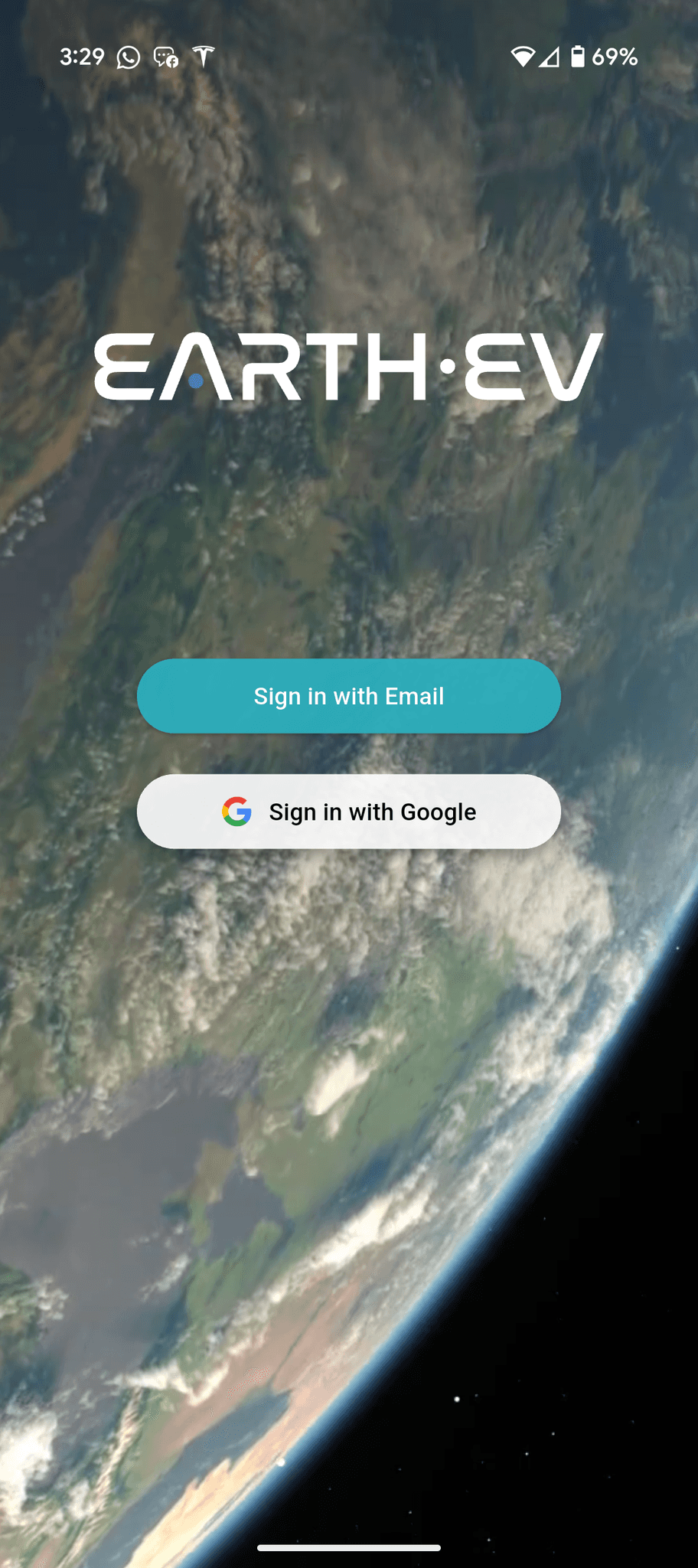
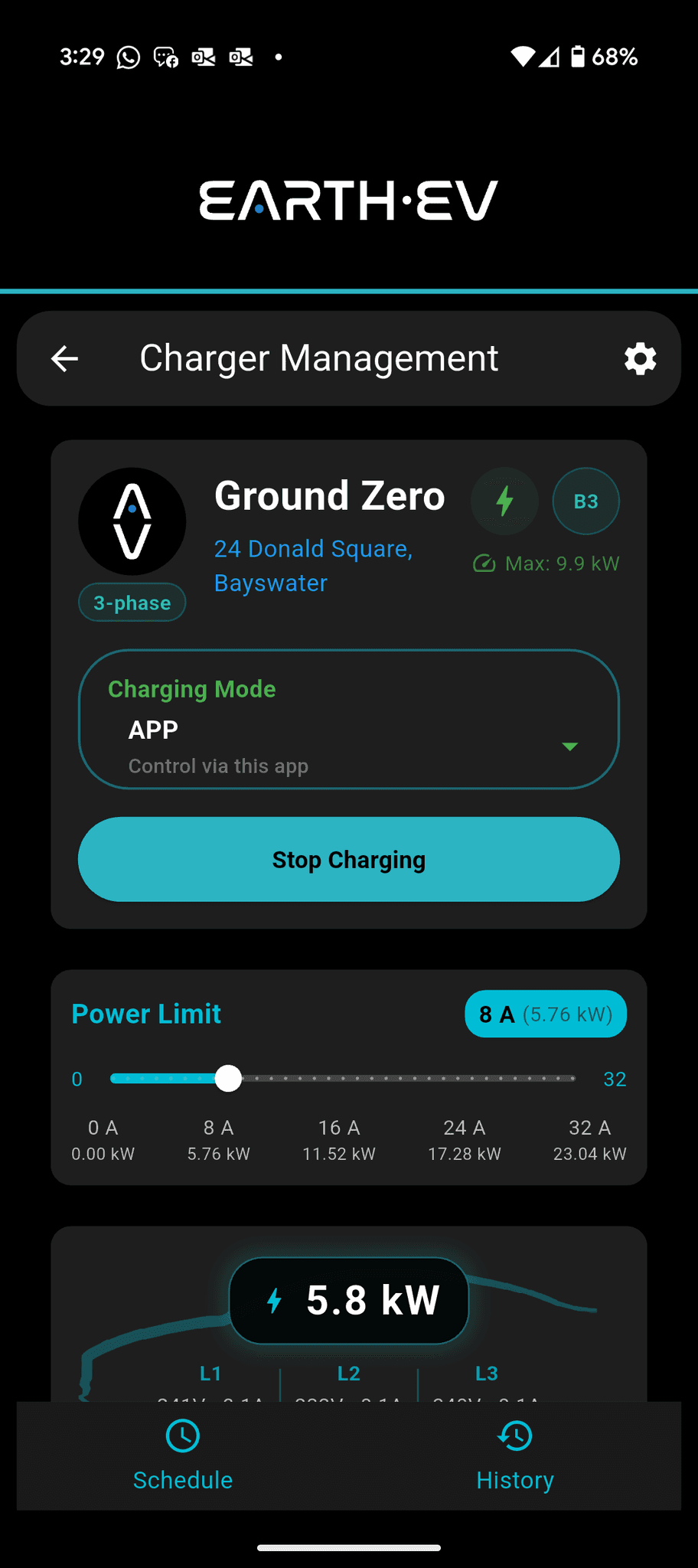
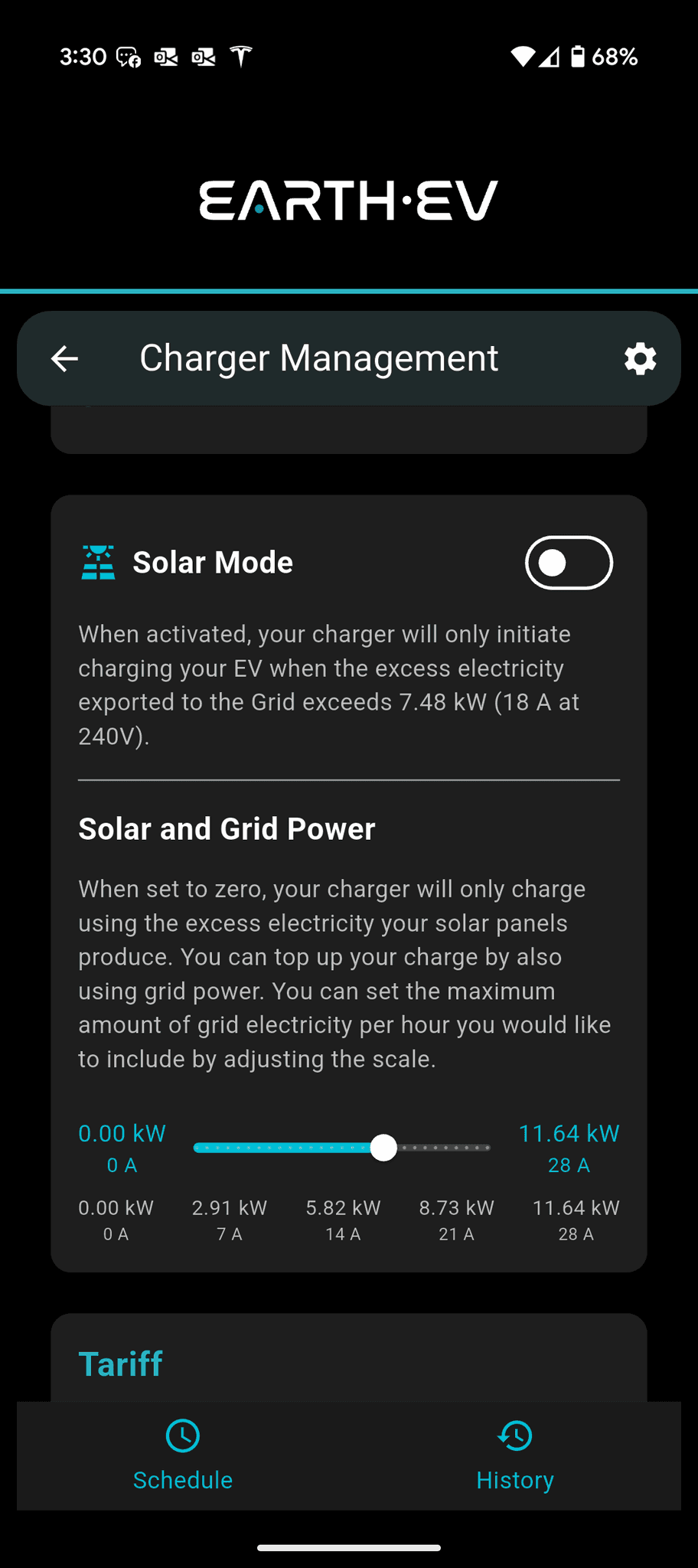
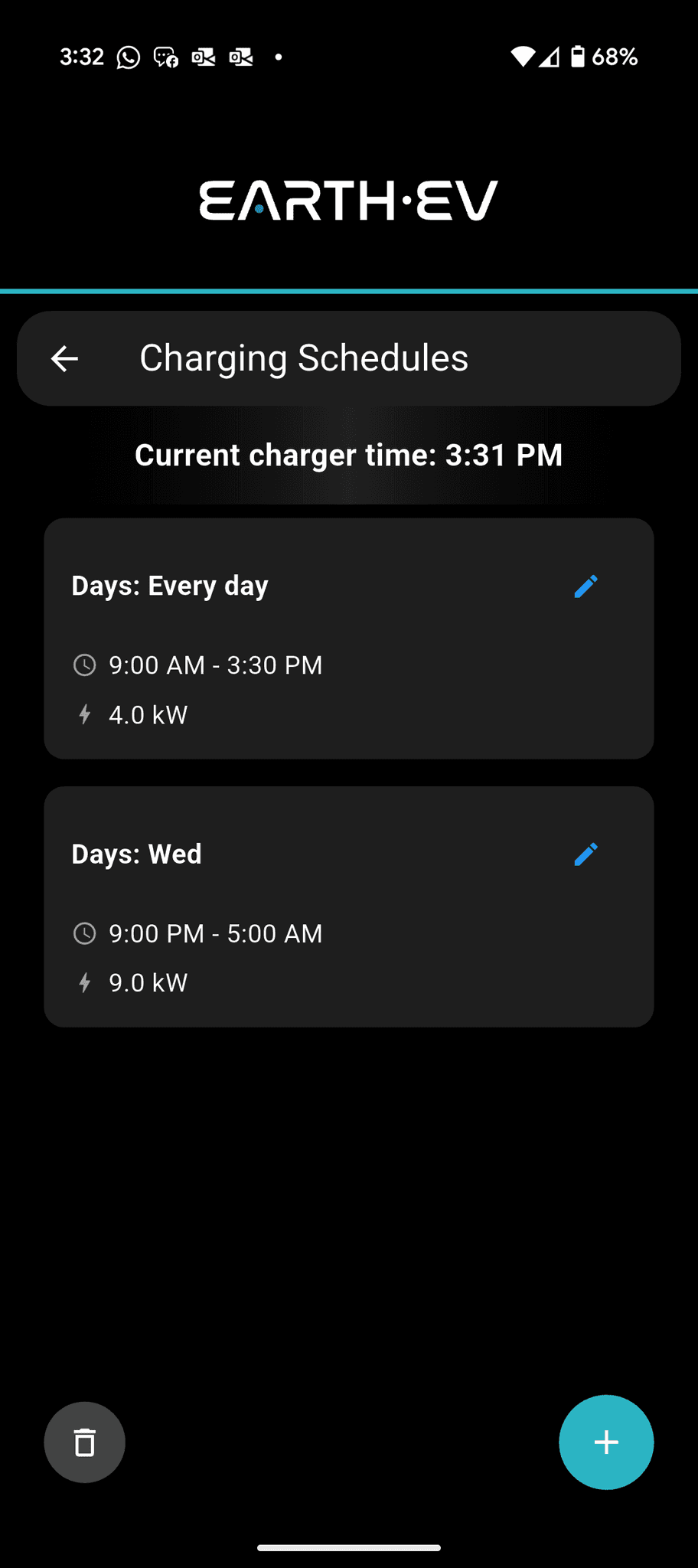
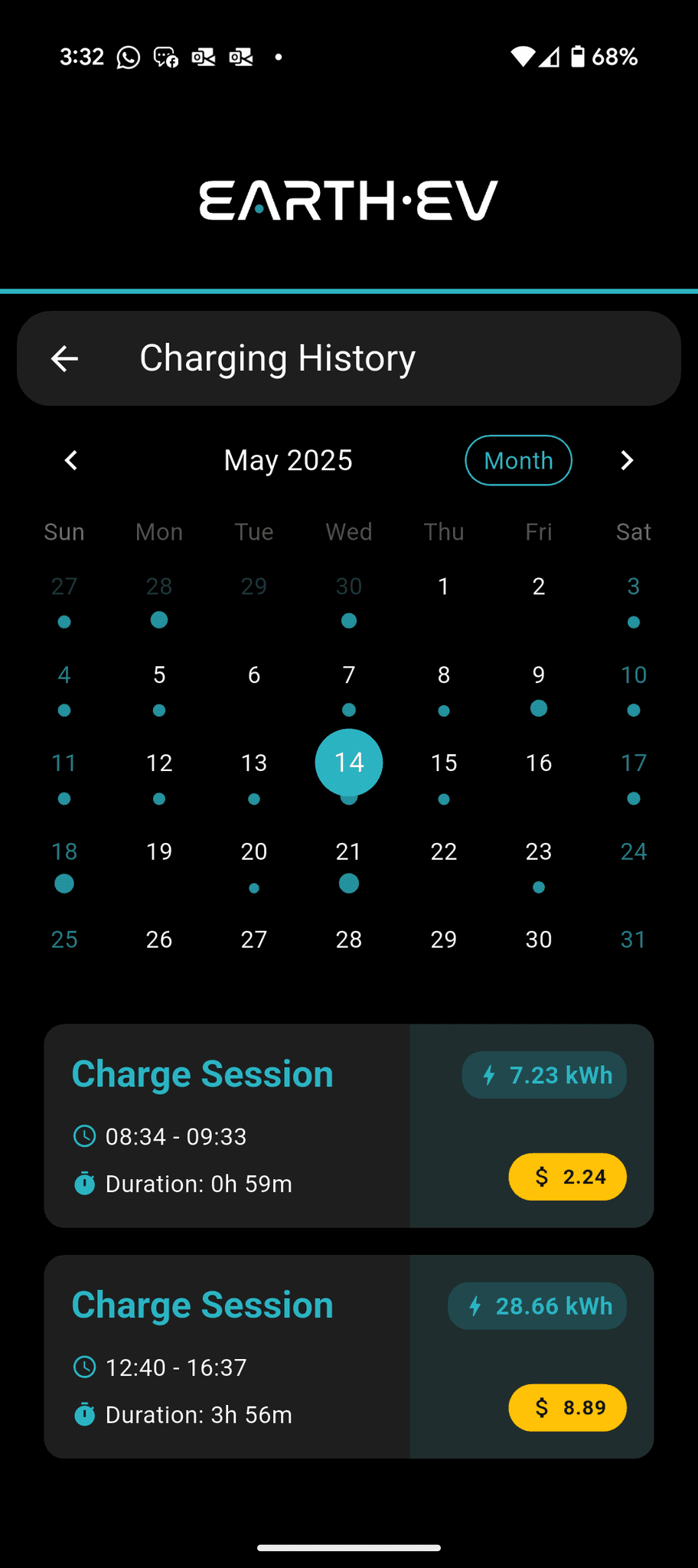
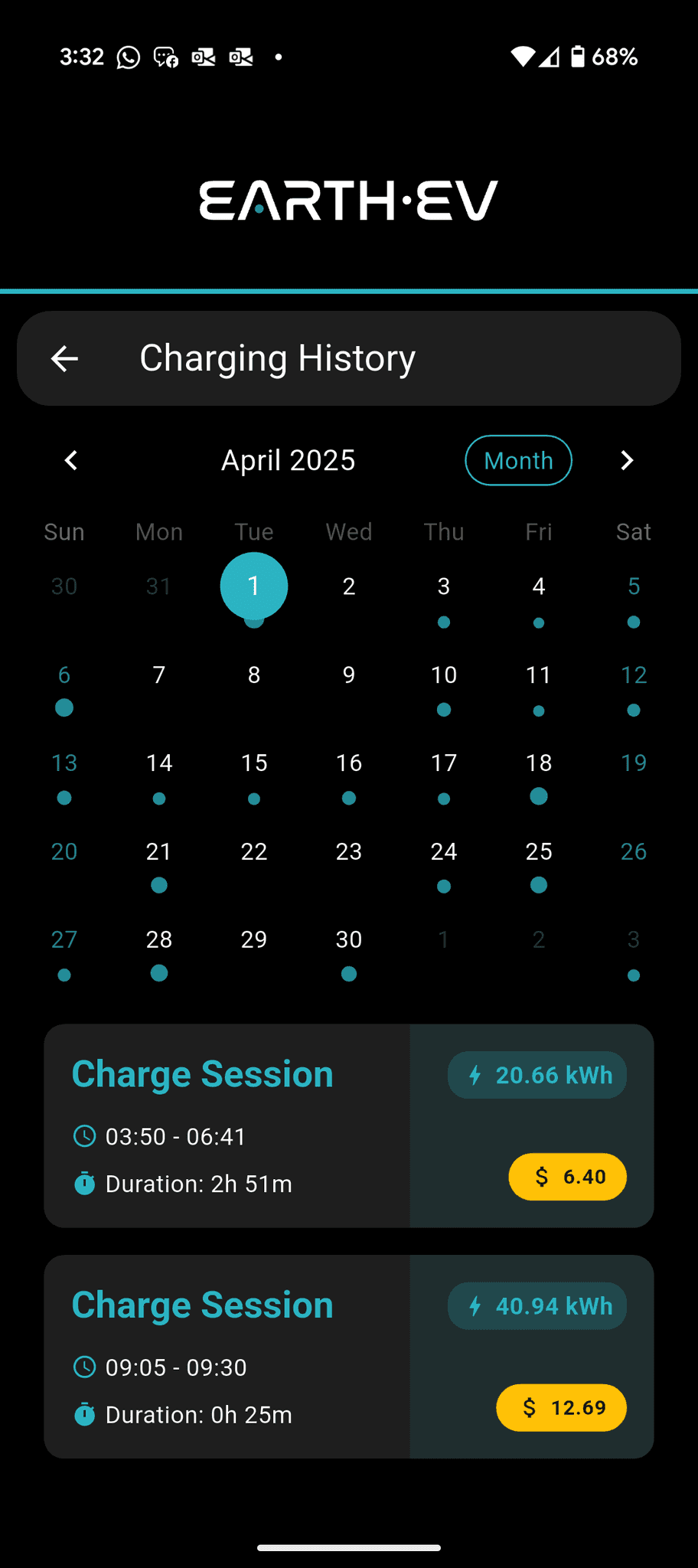
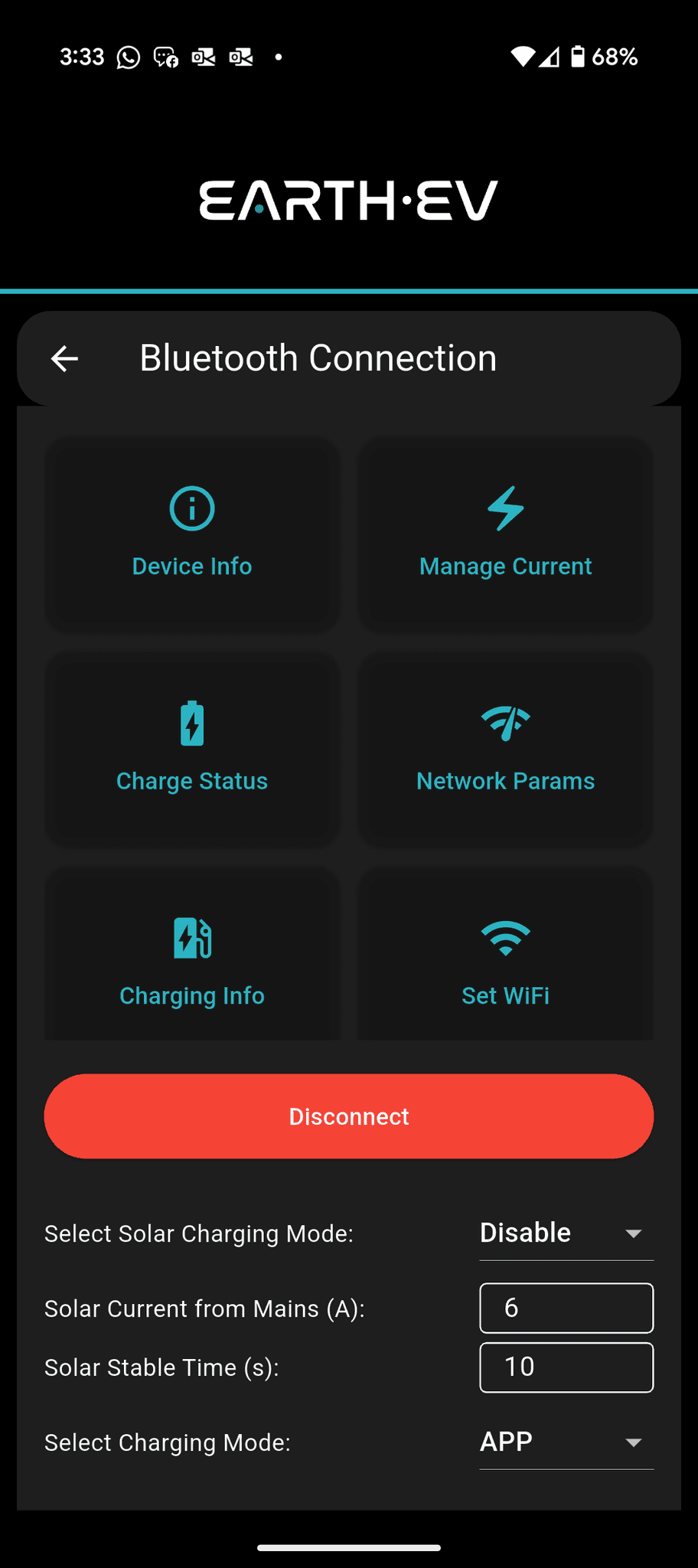
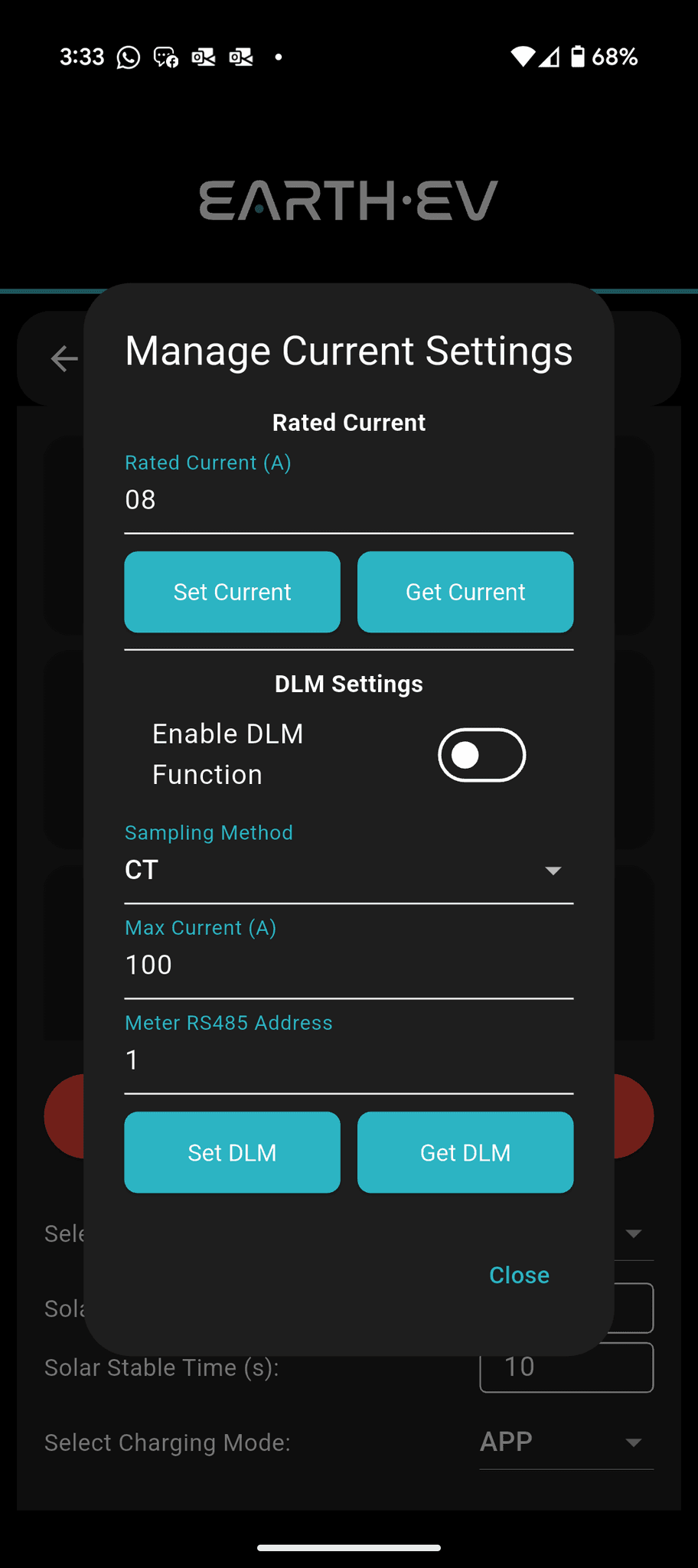
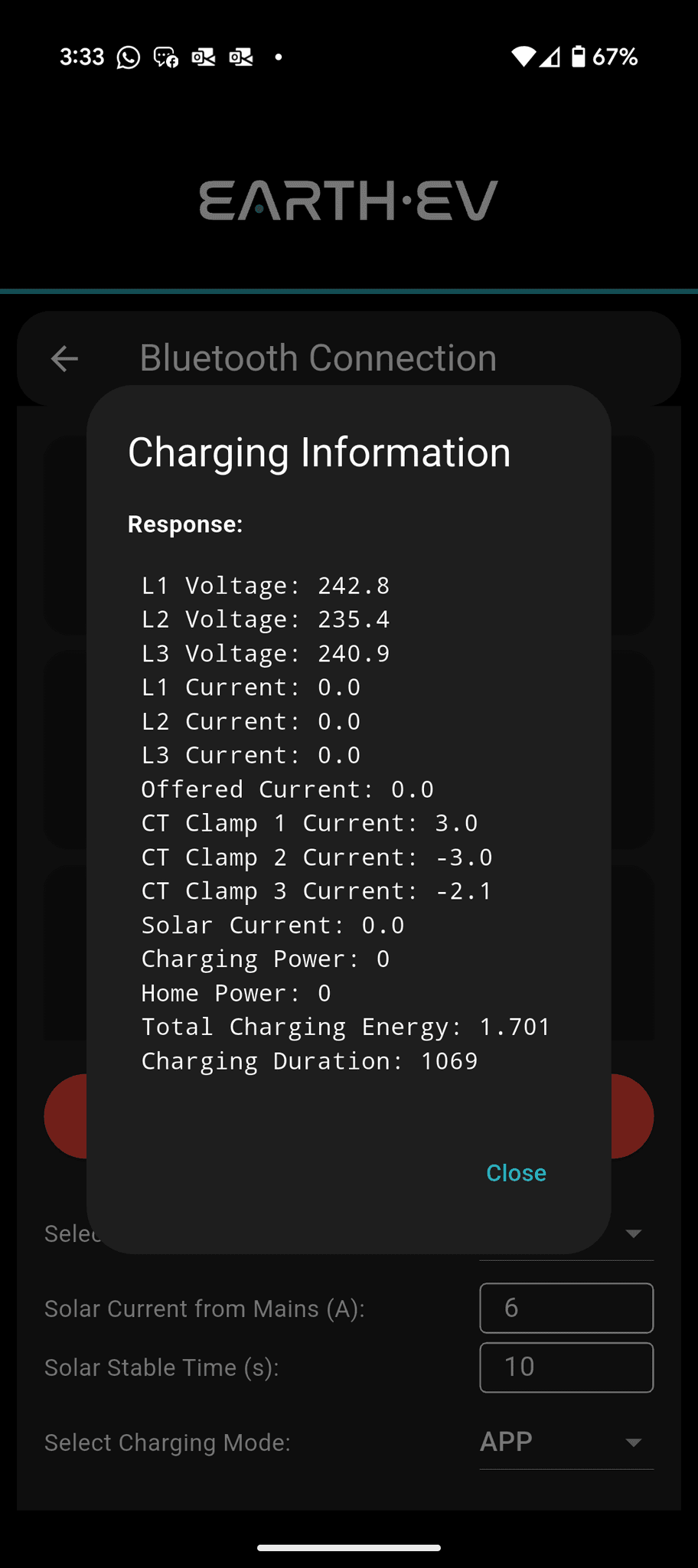
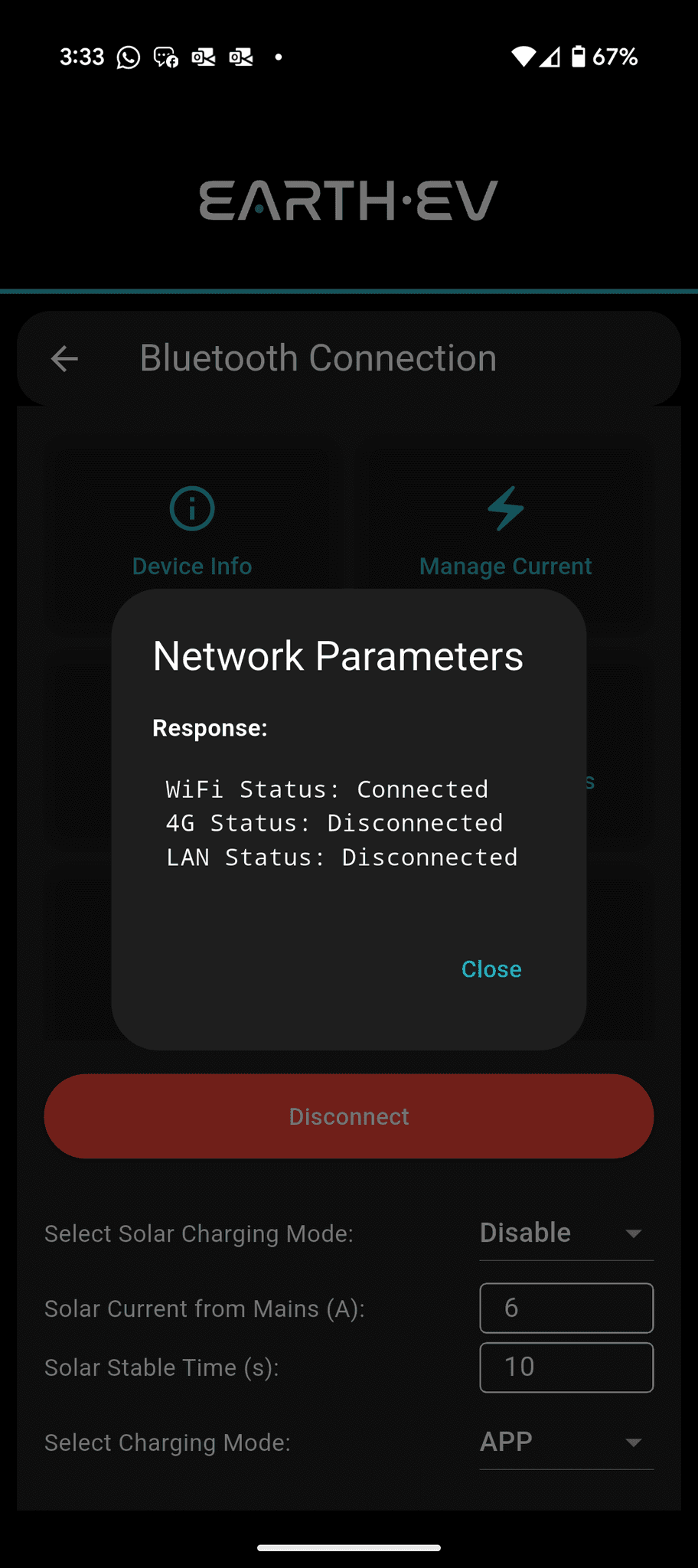
Flexible fast chargers for savvy drivers.
Experience 8x faster charging and unparalleled control with Earth EV’s smart, simple, solar-ready devices.
Start, stop, speed up, or slow down charging remotely with time and amperage controls on the Earth EV app or using the device’s intuitive touch controls.

Easy to install, easier to use. Just tap a button, plug in your car, and go about your day—we’re here to make your life easier.

EVs charge from 0-100% in 3-4 hours with up to 22kW/32A power.
Range anxiety? Never heard of it.

Adjust amperage between 6-32A for rapid power or low-cost charging—solar, grid, or both. The power is literally in your hands.

No overseas call centres or robot answering machines, just Aussie technicians ready to handle anything you throw at them.
Never be powerless again. Earth EV provides a fast, reliable charge every time you plug in, with live monitoring and remote control over Wi-Fi. LAN, or 4G via management app.
Manual amperage control and dynamic load balancing keep your EV powered without maxing out your power bill or blowing a fuse.
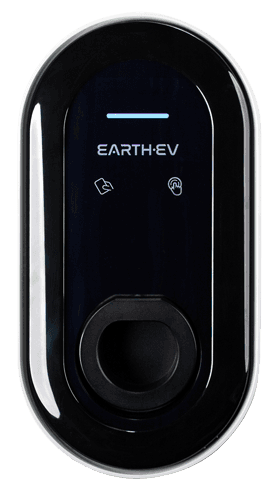










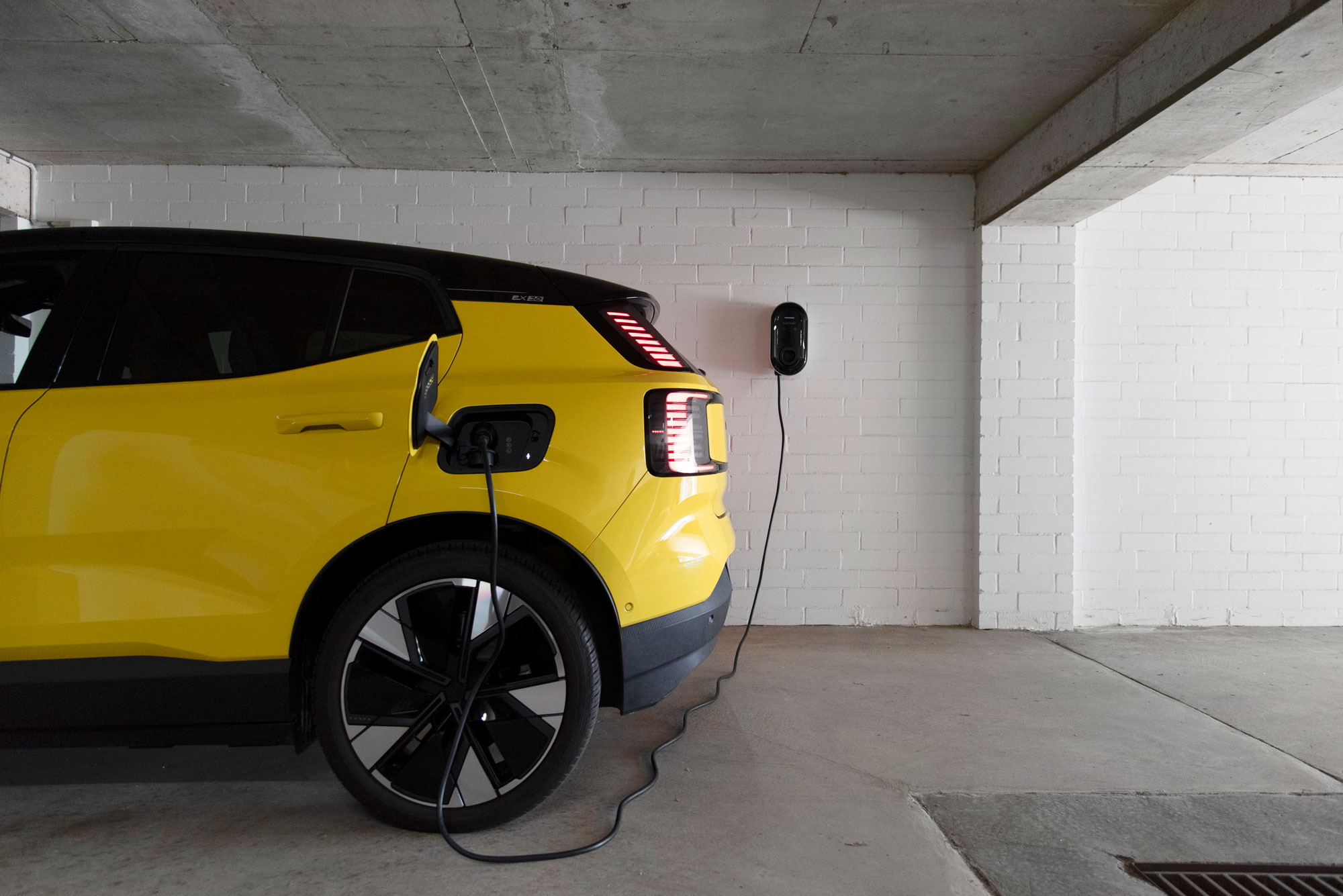
Supplied exclusively through electrical distributors.
A standard wall outlet in Australia can take up to 30 hours to fully charge your vehicle. Earth EV’s chargers provide the same level of charge up to 10x faster.
Dedicated chargers like ours can also come with smart features to let you schedule charging sessions, adjust power levels, monitor costs/usage, and tap into household solar panels.
Check out our AC Home Chargers to find out more about options designed specifically for Australian homes and conditions.
We know it’s frustrating when a website gives you a vague range instead of an exact price, but it really does depend on your setup.
The type of charger, specific power/configuration, and even the method of installation can impact the final price. To organise a more specific quote for your home or get in touch with a local installer, send us a message.
Earth EV offers both permanent wall box devices and more flexible portable systems with Level 2 charging (significantly faster than plugging into a standard wall outlet, but not quite as fast as a public fast-charging station). Our chargers can be set up with outputs of either 7kW or 22kW.
For commercial customers, we can also help with Level 3 DC fast chargers. These systems need a lot more power than a standard home circuit can provide, so they’re only compatible with sites that can fit the necessary infrastructure.
Whether you have a wall box or a portable fast charger, your charging speed will depend on the wattage of the device and the amp level you set in the charging settings.
Assuming they’re set to the maximum 32A, a 7kW system will charge an EV from zero to 100% overnight (8-10 hours). A more powerful 22kW system will only take 3-5 hours for a full charge.
Quite possibly—especially if you’re buying a portable fast charger.
All Earth EV products need to be installed by a qualified electrician, but some require more initial setup work than others. If a technician confirms that your home’s circuit can handle the power load of a fast charger, you can usually install a wall box system without too many extra steps.
If you have a portable charger, on the other hand, you’ll need to install a new high-voltage outlet near your parking space. The fast charger needs more power than a normal 230V wall plug can provide, so make sure you get the electrician.
There isn’t currently a federal incentive program for residential EV chargers across Australia, but some states offer incentives or grant/loan schemes to residential and commercial/strata EV charger customers:
ACT: Residential customers and community groups can apply for a $2,000-$15,000 loan with 0% interest through the state’s Sustainable Household Scheme.
WA: Charge Up Grants can cover 50% of charger and install costs for SMEs, NFPs, and local governments.
TAS: Both residential and commercial/strata customers can apply for a 0% interest loan up to $10,000 through Tasmania’s Energy Saver Loan Scheme.
NT: The Electric Vehicle Charger Scheme offers $1,000 per residential property or $2,500 per business (until July 2026).
While there isn’t a federal option for homeowners, the government’s DRIVEN Program offers a $2,500 rebate per charger for car dealers/repairers (up to $20,000
The first factor is the physical plug. Older cars or specific imported models may have non-standard plugs (like Tesla’s supercharger connector or the Japanese CHAdeMO plug. Make sure the socket and plug match before installing your system (or look into adapter options).
On a deeper level, the wiring inside some EVs is designed to take a specific level of power. If your vehicle is specifically built to take an AC input of either 7kW or 22kW, you’ll need to make sure your charger is outputting that wattage.
Your EV owner manual should say exactly what kind of charging plug and inverter wattage you’ll be working with. If you have any questions, our team can assist you.
